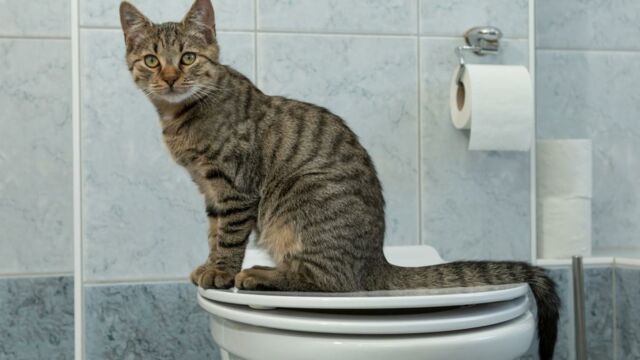Essential Reasons Why Animal Waste Should Never Be Flushed Down the Toilet
Essential Reasons Why Animal Waste Should Never Be Flushed Down the Toilet
Blog Article
The author is making several good pointers on Why you should never flush dog poop down the toilet in general in this content following next.

When it comes to disposing of waste, specifically animal waste, lots of people usually turn to the convenient alternative of flushing it down the commode. Nevertheless, this seemingly simple solution can have severe repercussions for the setting and public health. In this short article, we'll discover why flushing animal waste down the toilet is a poor idea and offer alternate methods for appropriate disposal.
Introduction
Proper waste disposal is crucial for maintaining environmental sustainability and public health. While it might appear harmless to flush animal waste down the commode, it can bring about various concerns, both for the atmosphere and human wellness.
Threats of flushing pet waste
Environmental influence
Flushing animal waste introduces hazardous microorganisms and virus right into waterways, which can adversely impact water communities. These virus can contaminate water sources and injury marine life, disrupting delicate communities.
Public health problems
Pet waste consists of harmful germs such as E. coli and Salmonella, which can present major health risks to humans. Flushing pet waste down the commode can infect water materials, leading to the spread of diseases and infections.
Alternatives to flushing
Rather than flushing animal waste down the bathroom, there are numerous alternate disposal approaches that are extra eco-friendly and sanitary.
Composting
Composting animal waste is an eco-friendly means to dispose of it. By composting, raw material is broken down right into nutrient-rich dirt, which can be used to fertilize yards and plants.
Land fill disposal
Disposing of animal waste in a land fill is another alternative. While not as environmentally friendly as composting, it is a more secure option to flushing, as it protects against the contamination of water resources.
Animal waste disposal systems
There are specific family pet waste disposal systems readily available that securely and hygienically get rid of animal waste. These systems often use enzymes to break down waste and remove odors.
Actions to correct pet waste disposal
To ensure appropriate disposal of pet waste, follow these actions:
Scooping and bagging waste
Frequently scoop and bag pet waste making use of naturally degradable bags. This prevents waste from contaminating the atmosphere.
Making use of marked waste containers
Dispose of bagged pet waste in marked waste containers, such as garden compost containers or land fill bins. Prevent flushing it down the commode whatsoever prices.
Cleaning litter boxes and animal areas routinely
Routinely clean litter boxes and pet locations to stop the build-up of waste and germs. Use pet-safe cleansing products to keep hygiene.
Advantages of appropriate disposal methods
Adopting appropriate disposal approaches for animal waste supplies a number of advantages:
Decreased environmental pollution
Proper disposal techniques decrease the danger of environmental pollution, protecting waterways and ecosystems from contamination
Lessened threat of water contamination.
By avoiding flushing animal waste down the toilet, the risk of water contamination is dramatically reduced, protecting public health.
Boosted hygiene and hygiene
Proper disposal methods advertise much better cleanliness and hygiene, developing a more secure atmosphere for both humans and pets.
Final thought
Finally, flushing pet waste down the toilet is damaging to the environment and public health. By adopting different disposal methods and adhering to proper waste administration practices, we can reduce the adverse impact of animal waste and contribute to a cleaner, healthier world.
What To Do With Dog Poo – The Do's And Don'ts Of Disposing Of Faeces
Dog poo bins
Some councils provide dedicated dog waste bins in popular dog-walking areas that can take dog poo that has been bagged but you can legally dispose of dog waste in any public litter bin, as long as it is securely bagged. This also applies to your wheelie bin at home.
Do not flush
Water companies do not recommend flushing dog faeces down the toilet because certain parasites can survive the water processing treatment and are potentially harmful to humans. You should also never consider flushing dog poo that has been bagged down the toilet as the bags will not break down and instead create severe blockages in the sewage system.
In the woods
The Forestry Commission promotes a ‘stick and flick’ method for dealing with waste in the woods. This means finding a stick and using it to flick any poo from off the path so that it is out of the way of other walkers. You could also bury it as long as it is not in an area where there might be livestock.
Livestock
Parasites found in dog poo can be transmitted to livestock if they inadvertently eat infected faeces that has been left on grazing land. This could result in the death of sheep or abortion in cattle so you should always make sure you pick up your dog’s waste in fields where livestock could be present.
I ran across that article on Should you flush animal waste down the toilet while browsing the search engines. Make sure you set aside a second to distribute this post if you appreciated it. I enjoy your readership.
Call Today Report this page